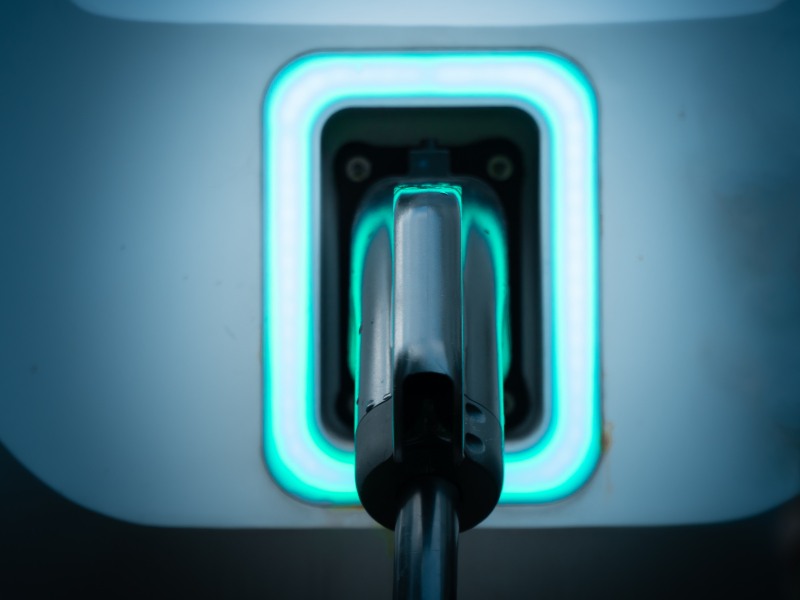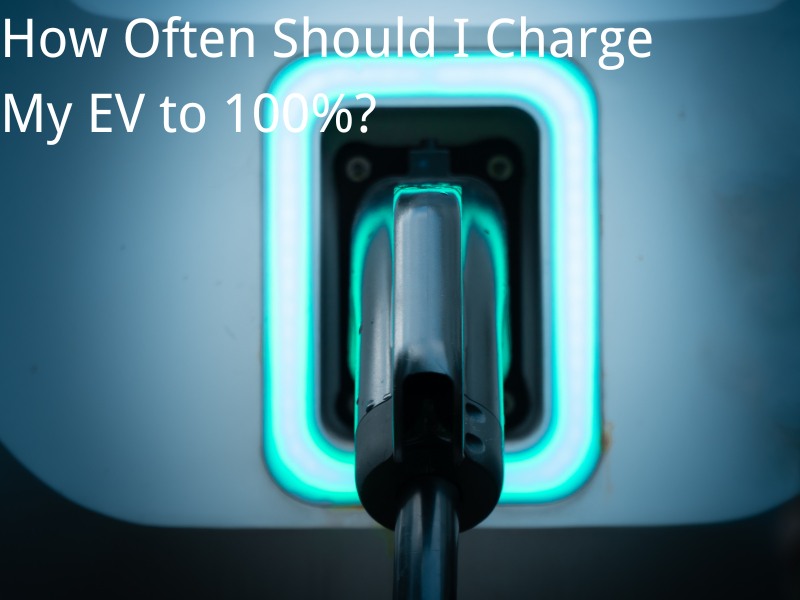The popularity of electric vehicles (EVs) is changing our view of transportation. It provides a cleaner and more sustainable way of travel than traditional fuel vehicles, but many people who charge their electric vehicles always consider how long it will take to charge to 100% for the electric vehicle.
Under normal circumstances, we do not recommend charging electric vehicles to 100% frequently, because this will accelerate battery aging. In daily use, keeping the battery between 20% and 80% can better protect the health of the battery. Next, let us learn about the relevant knowledge points about electric vehicle charging.
Table of Contents
ToggleWhy is It Not Recommended to Charge EVs to 100% Frequently?
It is not recommended to frequently charge the battery of an electric vehicle to 100%. Electric vehicles usually use lithium-ion batteries, which are sensitive to extreme values of the state of charge (especially full charge and full discharge). Here are some key points:
1. Increased Stress
When the battery is close to the full state of charge, the pressure inside the battery will increase, which may cause the battery chemistry to age and deteriorate faster.
2. Thermal Management Issues
Charging to 100% may cause the battery to generate more heat. If the battery’s thermal management system cannot effectively handle this additional heat, it may affect the battery’s performance and safety.
3. Shortened Life
Frequently charging the battery to 100% will shorten its overall life. When lithium-ion batteries are repeatedly charged to high power or discharged to low power, their usable capacity will gradually decrease.
4. Battery Health Maintenance
To maintain the best health of the battery, many electric vehicle manufacturers recommend charging the battery to about 80% in daily use and only fully charging it when it is needed for long-distance driving.
Therefore, proper battery charge management can not only extend the life of the battery, but also maintain the good performance of the vehicle.
How do Electric Vehicle Batteries Work?

The working principle of electric vehicle batteries is based on lithium-ion technology. These batteries store and release electrical energy to drive the car. When the electric vehicle is charged, electricity from the grid is transmitted to the battery through the charger, causing the lithium ions in the battery to move from the positive electrode to the negative electrode and store energy.
When driving, the lithium ions return from the negative electrode to the positive electrode, releasing the stored energy to power the electric motor, which propels the car forward. These batteries have some characteristics that affect how they charge:
Battery chemistry and capacity: Lithium-ion batteries have a limited number of charging cycles, usually between 500 and 1,500 complete cycles. Each cycle consists of a full discharge from 100% to 0% and a recharge to 100%.
Degradation over time: Like all batteries, electric vehicle batteries degrade over time. Factors that contribute to degradation include the number of charging cycles, charging habits, temperature, and how often the battery is charged to full capacity.
What are the Best Charging Practices for EVs?
To maximize the life and performance of your electric vehicle battery, you can schedule your electric vehicle charging in the following ways, which can reduce battery stress and slow down the rate of degradation:
1. Maintain Moderate Temperatures
Extreme temperatures can have a negative impact on battery health. Charging your electric vehicle in a cool environment and avoiding high temperatures can help extend battery life.
2. Charging Time and Frequency
Try to start charging when the battery is low (such as around 20%) and charge to 80% to 90%. This helps extend the life of the battery. A full charge to 100% is usually only recommended when you need to travel long distances.
3. Use Recommended Chargers
Use the charging equipment and methods recommended by the vehicle manufacturer, and avoid using fast charging as a daily charging method, as high-frequency fast charging may accelerate battery aging.
4. Plan Charging Time Appropriately
Consider charging during periods of low grid load (such as at night), and note that you don’t need to charge your electric vehicle every night. If you commute a short distance every day, you can charge it 1-2 times a week. Not only does this reduce stress on the grid, but it may also be more economical due to lower electricity prices.
Charging your battery with the above requirements can help protect your electric vehicle’s battery, extend its life, and ensure optimal vehicle performance.
When Should You Charge to 100%?

Although frequent full charging is not suitable for daily use, there are specific situations where fully charging an electric vehicle can be beneficial:
1. Long-Distance Travel
When planning a long journey, charging to 100% is necessary to ensure that you can reach your destination without frequent stops.
2. Infrequent Use
If your electric vehicle is not used frequently, it may be beneficial to fully charge it before long-term storage. However, it is also necessary to monitor the battery and charge it regularly to avoid deep discharge.
3. Battery Calibration
Occasionally charging to 100% can help the vehicle’s battery management system recalibrate and provide a more accurate range estimate. This operation should be done in moderation, perhaps every few months.
What Are the Charging Methods for Different Electric Vehicles?
Different electric vehicles have different charging methods. Here are some common charging methods listed by EV charging manufacturers. I hope it will be helpful to you.
Tesla: Tesla recommends charging to 90% in daily use and charging to 100% on long-distance trips. The company provides software settings that allow users to limit charging to a specified percentage.
Nissan: For the Nissan Leaf, it is recommended to charge to 80% in daily driving and only charge to 100% when necessary.
Chevrolet: The Chevrolet Bolt EV also recommends charging to 80% in regular use and charging to full-on long-distance trips.
What Advanced Charging Technologies Are Available for Electric Vehicles?
As electric vehicle technology advances, new charging methods and technologies are being developed to improve battery life and performance. Some of these innovations include:
1. Smart Charging Systems
Modern electric vehicles are equipped with smart charging systems that optimize charging based on usage patterns and battery health. These systems can automatically adjust charging rates and limits to extend battery life.
2. Regenerative Braking
Regenerative braking systems allow electric vehicles to recover energy when braking and store it back into the battery. This technology reduces the need for frequent charging and helps maintain battery health.
3. Wireless Charging
Although still in its early stages, wireless charging technology offers a convenient and efficient way to charge electric vehicles without the need for a physical connection. This technology has the potential to reduce wear and tear on charging ports and improve the overall user experience.
Conclusion
How often should an electric car be charged to 100%? I believe you have already got the answer you want in this article. The way to charge an electric car often depends on your driving needs and habits. Generally speaking, keeping battery power between 20% and 80% can effectively extend the battery life and health.
Related reading: Level 1 vs Level 2 vs Level 3 EV charger


